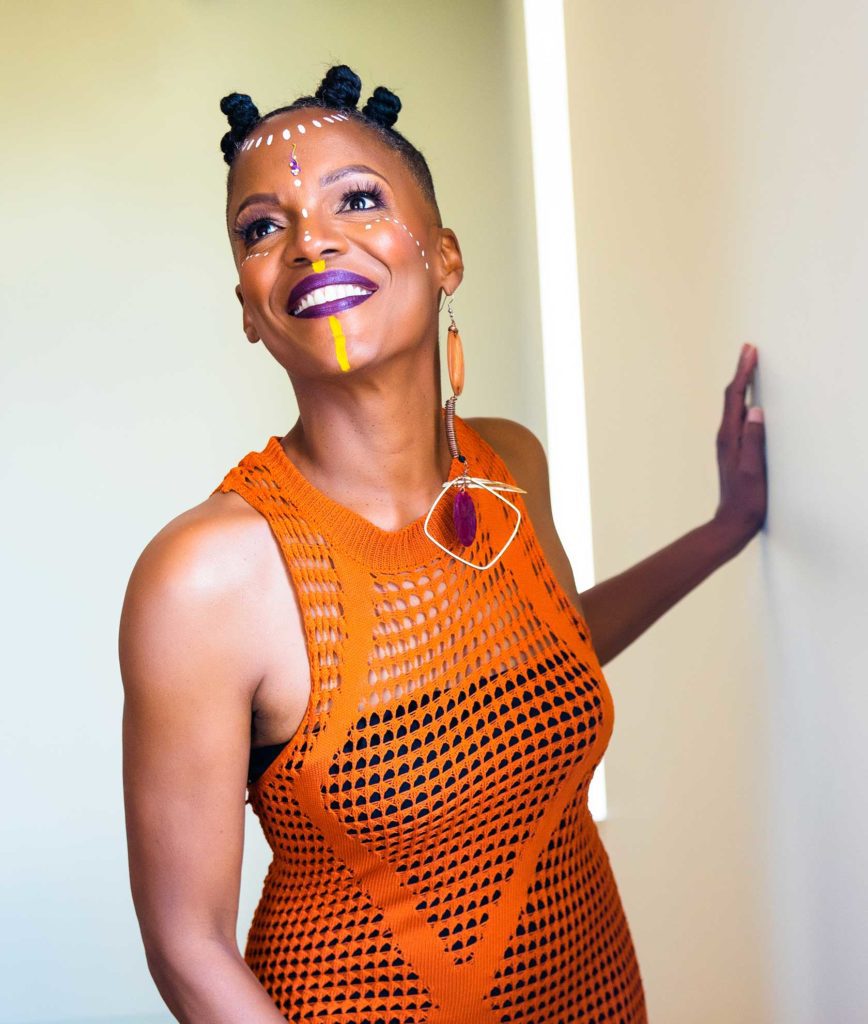
Vocalist and educator Nnenna Freelon just received her sixth Grammy Award nomination, and this time it’s for “Time Traveler” (Origin Records), her 11th album. Born and raised in Cambridge, Massachusetts, Freelon now makes her home in North Carolina, where she started a podcast about grief on WUNC. With one foot in music and the other in education, Freelon brings about a profound synthesis of the arts and healing. Her voice carries with it degrees of patience and awareness that are meant to inspire listeners to salvage their own strengths. Freelon does this uniquely with her “Babysong Workshops.” The Banner caught up with her by phone.
You grew up in Cambridge and graduated from Simmons College. What can you tell us about those formative years?
Until I moved to North Carolina, I spent my entire life on Chilton Street in Cambridge and then as a student at Simmons College. We were the golden children, and you can make that a capital “G.” It was a wonderful childhood; we ran the streets, everyone looked out for everyone’s kids. Many families were transplants from the South who came to the Boston area as part of the Great Migration. My mother was from Texarkana, Texas; my father was from Halifax, North Carolina. My mother had a shop on Concord Avenue: Debbie’s Beauty Salon, which was a place of culture, connection and love. It was an insulated community, a bubble, and we were loved by those around us.
You started “Babysong Workshops.” How do those work?
I started those in the 1990s to sit down with parents and very young children and explore the voice as a tool for teaching nurturance and just plain fun. Singing to your children is an underutilized tool. To demystify singing to children: You don’t have to be a professional singer. Babies are not critics! They feel the love that comes through your voice. And since the brain is affected by music, singing to your children can help with their neurological development. It’s an entry point: the brain lights up with singing.
“Time Traveler” just came out in May. What might listeners hear?
Music allows us to travel in time to the moment you first heard it; it transports you to that space, and it takes you to where you are going. I can still remember where I was when, for example, I heard Jim Croce sing “Time in a Bottle,” back in the ’70s on my transistor radio. So music allows me to move fluidly through space and time, and in that sense, it can resonate in ways that are healing.
The new album features Kirk Whalum on sax, E.J. Strickland and Adonis Rose on drums, and Noah Jackson and Gerald Veasley on bass. What do these talented musicians bring to your work?
Each and every person on this record brought what I like to call their special sauce: humble gifts of joy and peace and sorrow, laid out unafraid. They all have wonderful histories, their own worlds. There were tears in the studio. And laughter. I’ve never had that experience before. It was beyond amazing.
I see that one of your children, Pierce Freelon, also received a Grammy nomination in the category of Best Children’s Music Album for his new recording, “Black to the Future.” That may be the best album title I’ve heard in years.
It was joy upon joy to see him get that nomination! I’m so proud of him. Both of our records are about family. He helped produce mine, and I sang “No One Exactly Like You” on his.
Greatgrief.com, your podcast out of WUNC, just ended season 1 in September. What will season 2 bring?
In Season 2, I will interview Grief herself, in my own voice. Since grief is a big taboo, music is a potent tool for addressing it; song and story are the last things to go before we pass away. Then, too, you grow into your grief; it is for the living. You go through sorrow, anxiety and fear, and by dealing with the big “G” of grief, you get to joy, peace and hope. My husband passed away in 2019, as did my sister six months later. My podcast and record are the bricks to build a new structure.
As a seasoned performer and evidently a mentor to your own children, do you have any advice for musicians just launching their careers?
Look at the “why” of what you’re doing. Why do you want to sing or play the saxophone or drums? Be brutally honest about the why, because when you understand why you’re doing this, it will keep you shored up when things get difficult. And get familiar with “no.” If you always need to hear “yes,” this is probably not the business for you. Remember, too, that your art is a blessing for you and others.







